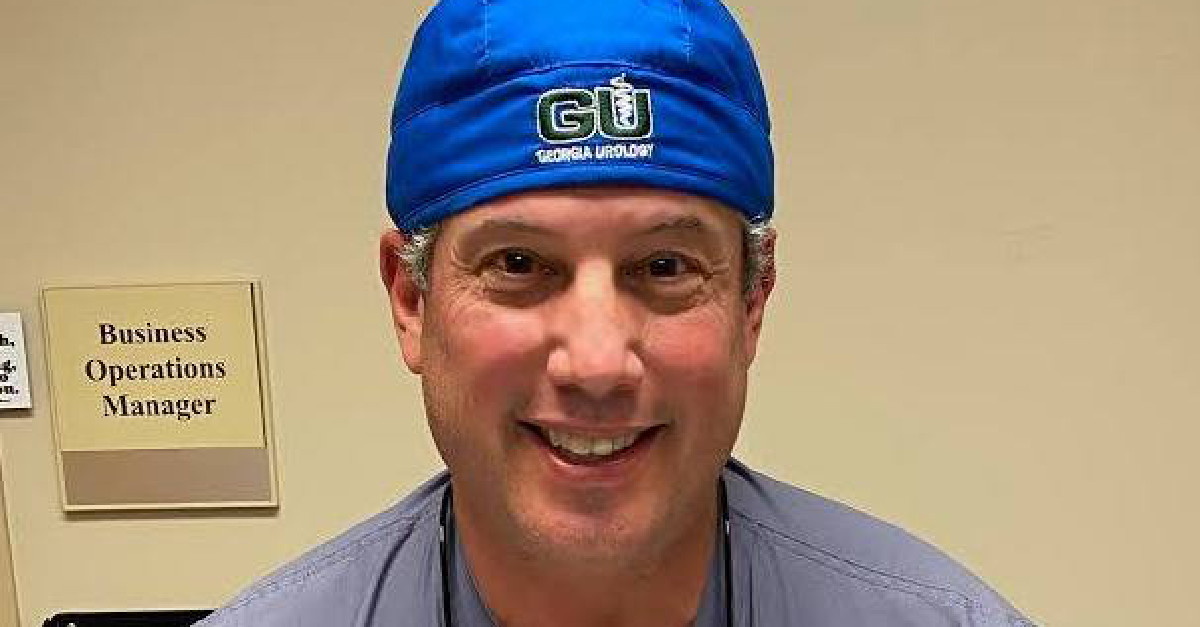Enlarged prostate patient ‘happy customer’ after Aquablation procedure
Mark Moore, a retired airline pilot in his late 60s, knew something was wrong. Throughout the day, his bladder was constantly irritated and never felt fully emptied. Each night he would wake up four to six times to urinate.
In search of relief, Moore was referred to Georgia Urology’s Dr. Lewis Kriteman. After examining and monitoring his patient, Dr. Kriteman diagnosed Moore with benign prostatic hyperplasia (BPH), also known as enlarged prostate.
A health issue that becomes more common with age, enlarged prostate can cause symptoms such as blocking the flow of urine out of the bladder. Additionally, it can result in bladder, urinary tract, or kidney problems.
Several treatments are available for BPH, and Dr. Kriteman shared a variety of options with Moore. The patient ultimately chose Aquablation.
Aquablation, a noninvasive procedure, uses a heat-free waterjet controlled by robotic technology to remove prostate tissue. Since less heat energy is used to remove the tissue, it doesn’t necessarily affect the structures around the prostate. With the help of ultrasound imaging, the surgeon is able to see the entire prostate in real time. As a result, Aquablation therapy is precise, consistent, and predictable.
“Aquablation can be considered the Swiss Army Knife of BPH procedures because we really can do any size or any shape of prostate,” Dr. Kriteman says. “It gives us quite a tool to take care of patients and improve their symptoms. Even prostates that have previously had other procedures done on them can still be treated with Aquablation.”
Moore’s procedure took less than an hour to complete. After an overnight stay at the hospital, he returned home with a catheter still in place. Two days later, Moore returned to have his catheter removed, and the improvement was immediate.
“I haven’t had one bit of trouble since,” Moore says.
In clinical studies, men who had Aquablation therapy had a very low rate of irreversible complications such as incontinence, ejaculatory dysfunction, and erectile dysfunction. The efficacy of Moore’s procedure has been stellar, he says, and without complications.
“I go to the bathroom maybe once a night now,” Moore says, “and I’ve had no side effects from anything. And I don’t strain to urinate, which at my age can tend to be a problem.”
In fact, Moore was so pleased with the results that he recommended Aquablation to his older brother, who was also suffering from BPH. And the elder Moore had the same positive outcome.
Moore continues singing the praises of Aquablation, answering questions and sharing his experience with others dealing with enlarged prostate.
“If God forbid, my prostate keeps growing and I have to have (Aquablation) again, I would not hesitate,” Moore says. “Georgia Urology is always cutting edge and has access to the most up-to-date equipment. And I’m a very happy customer.”
To date, Georgia Urology has conducted more Aquablation cases than any urological practice in the country. Dr. Kriteman has performed approximately 450 of these procedures, and he currently trains urologists from around the world how to properly perform Aquablation.”
“Although I perform a lot of these procedures, it’s just as rewarding to spread the word and knowledge of how to do Aquablation to others,” Dr. Kriteman says.


